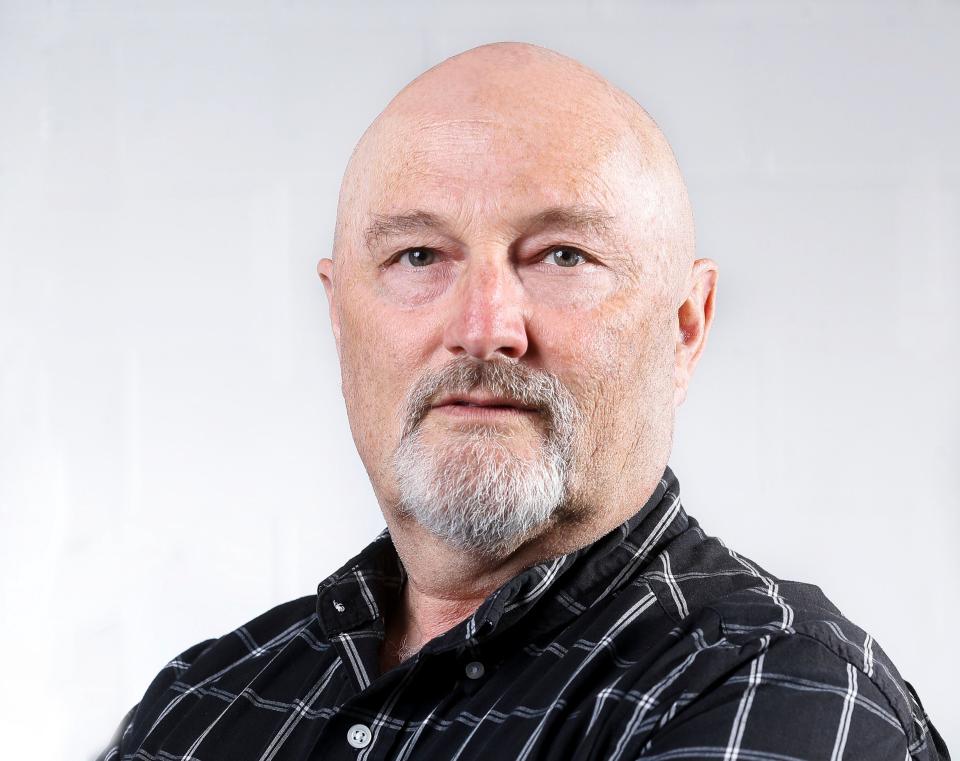Let's cool down since things are heating up | GARY COSBY JR.
I was photographing a high school football game Saturday night in Alabaster. It had been a hot day, but the humidity had remained at bay until the sun went down, then it was like trying to swim in the air. My cameras and lenses were even sweating. It was, as in a quotation from the movie "Throw Momma From the Train," moist.
Now for the bad news, as the atmosphere warms through global climate change, it appears we can look for more and more humidity. Apparently, warmer air is capable of holding more moisture than cooler air, so for each degree of average temperature increase, we can expect a great deal more humidity and rainfall.
I am a Southern boy, so I don't mind being hot. I like summer. I do not, however, like humidity, so this bit of climate news is not welcomed news to me. I know there is a fair amount of skepticism about climate change, but I am not one who disbelieves that the Earth is warming. That is abundantly clear by simply looking at global ice melt and the rapid retreat of glaciers. Plus, scientists are pretty good at numbers and measuring and things like that.

The problem is not the science, but how the science is being used politically. This statement is a gross generalization, but to be more specific would take a book rather than a column. In general, the Democratic Party has used climate science to further its agenda while the Republican Party has done the opposite, rejecting climate science to further its agenda. In short, both parties are attempting to use climate science to gain more political power. Science as a political football is not cool. If anything, it is undesirably, well, moist.
New regulations governing emissions, for instance, often place burdensome restrictions on business and industry, which drives up prices because there is one absolute certainty in this world and that is that profitable companies are not going to tolerate losing money. Whether the government gets it directly by taxing us or the government gets it through taxing business with climate-related penalties, we are the ones who ultimately pay.
OK, I get it. That is not all bad. I remember being a kid in the late 1960s and early 1970s and coming to Birmingham with my family. I remember how the sky looked yellow-green from all the emissions coming from the heavy industries that populated the steel city of the South. We had bad pollution situations all across America and had things not changed, had industry not been forced to change, we might have made as big a mess of our country as the Soviets did with Russia and the Chinese communists are doing with their nation.
In fact, we really don't see many visible emissions from even the largest factories in this country. Government has done a marvelous job enforcing regulations that ensure we have clean air and clean water. So that has been good. Now we have companies like Mercedes-Benz U.S. International that are moving forward with climate-friendly products without government pushing them to do so. MBUSI has begun manufacturing an all-electric SUV right here in Tuscaloosa. They are doing this well ahead of any move by government forcing automakers to produce electric vehicles. Kudos to MBUSI.
And who knows exactly how climate change will work out? More moisture in the air, resulting in more rainfall, might help alleviate decades-long droughts in the western United States. Of course, I saw a story only a couple of weeks ago predicting California's next big disaster will be mega-floods with 100 or more inches of rainfall occurring in a single event. That would not be so very helpful, but if they can get that rain a little farther east, it might help refill the rapidly vanishing portions of the Colorado River upon which much of the western U.S. depends.
Of course, if all that rainfall comes down in the right places, say the Sahara Desert, life could once again flourish there as scientists believe it did in prehistoric times. That would be cool, or warm, or perhaps even moist, if global climate change opens up areas to agriculture that have been previously unproductive.
The bottom line is that we face a time of global climate uncertainty. In some ways, the planet is self-regulating. If it gots hotter, and if there is more moisture in the air, the Earth will dissipate that added heat energy in the form of storms. That's the way good ol' planet Earth works. The bad news is those storms are likely to be more intense and more destructive to humans.
If, as some scientists fear, all this climate change melts the ice sheets from Greenland and Antarctic and sea levels rise precipitously, who knows, maybe we get some ocean-front property in Tuscaloosa or, as the song says, in Arizona. It might actually be nice to sit on my front porch and see the sea unless, of course, it just becomes dreadfully moist.
Gary Cosby Jr. is the photo editor of The Tuscaloosa News. Readers can email him at gary.cosby@tuscaloosanews.com.
This article originally appeared on The Tuscaloosa News: Let's cool down since things are heating up | GARY COSBY JR.

